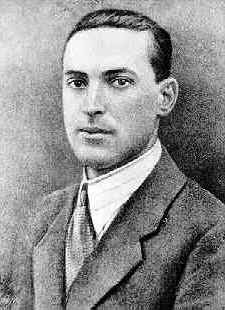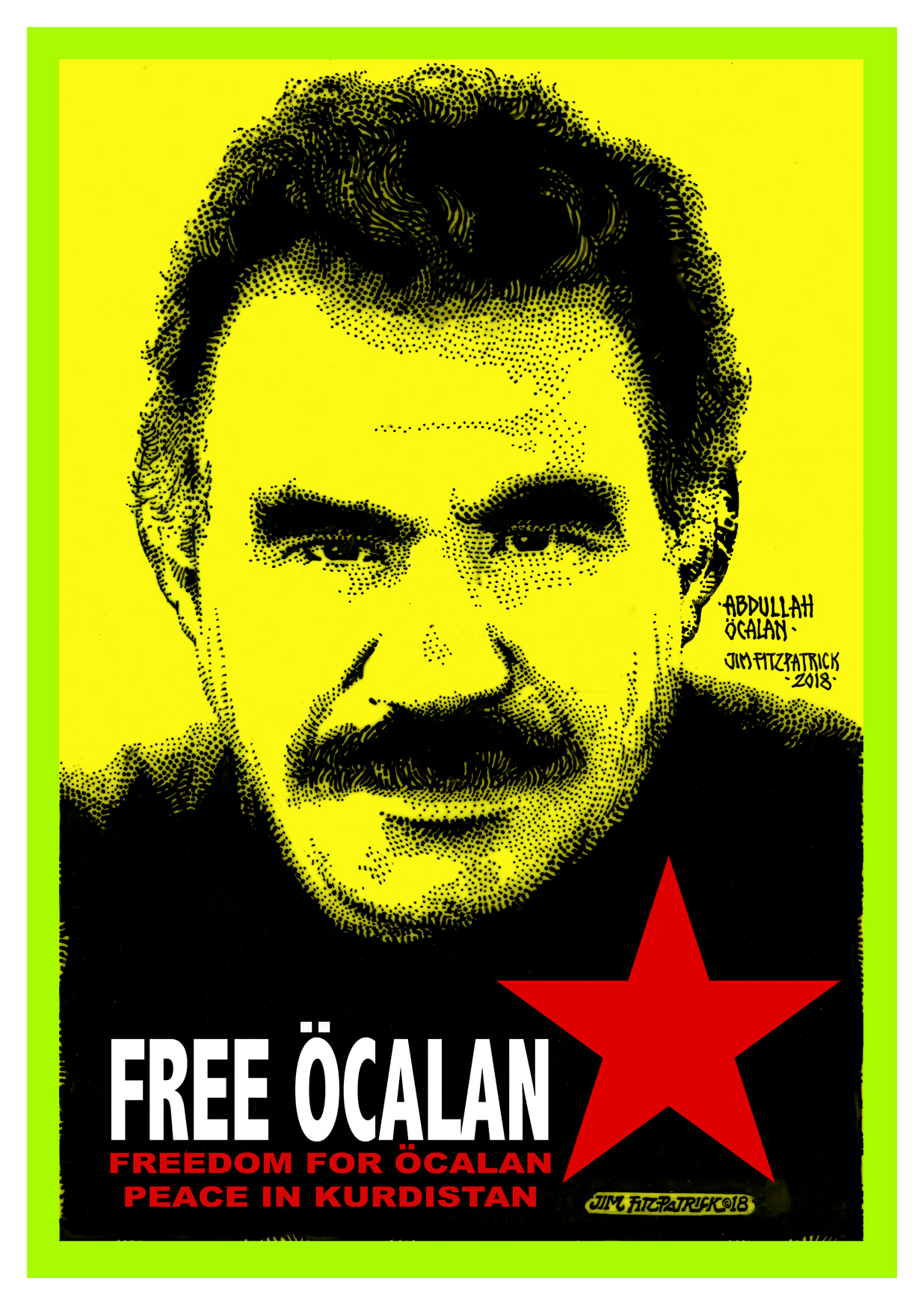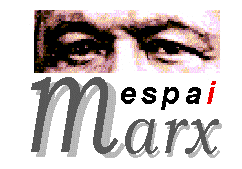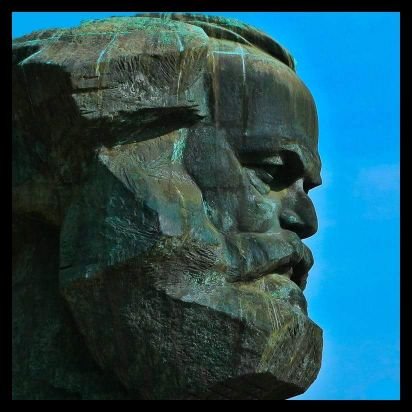Archivo
«Marx on the Concept of the Proletariat: An Ilyenkovian Interpretation»: Siyaves Azeri
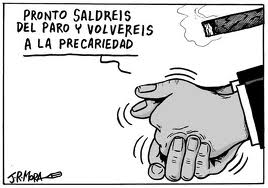 The notion of “concept” and the concept of “class” plays a central role in Marx’s and Marxist analysis of society and human activity. There is a large body of study about concepts, their formation and development, which has been made, in great extent, by Soviet psychologists from cultural-historical tradition that have been inspired by works of Lev Vygotsky. Yet, the achievements of the scientific works of these scholars have not been fully incorporated toward developing an epistemological-philosophical theory that aims at a proper understanding of concepts. Evald Ilyenkov is one of the major figures that has undertaken this task and has made great contribution to a Marxist philosophical theory of concepts and conceptual systems. Yet, his early tragic death has left his task unfulfilled. This paper is an attempt toward a first step of furthering and deepening Ilyenkov’s philosophical analysis of concepts. To this end, Marx’s concept of class will be analyzed with the use of Ilyenkovian approach to concepts. The paper attempts to show that contradiction is an essential aspect of conceptual and real development. It also aims at showing that the contradictory nature of concepts, on the other hand, reveals the normative aspect of conceptual activity: concepts and thus conceptual systems are not only contradictory but also normative. Normativity is a necessary aspect of conceptual development in that it put concepts into work, that is, it facilitates the resolution of contradictions that are inherent in reality and thus causes development of both the real and the conceptual realms; this development will reveal itself in form of a new, higher form of contradiction.
The notion of “concept” and the concept of “class” plays a central role in Marx’s and Marxist analysis of society and human activity. There is a large body of study about concepts, their formation and development, which has been made, in great extent, by Soviet psychologists from cultural-historical tradition that have been inspired by works of Lev Vygotsky. Yet, the achievements of the scientific works of these scholars have not been fully incorporated toward developing an epistemological-philosophical theory that aims at a proper understanding of concepts. Evald Ilyenkov is one of the major figures that has undertaken this task and has made great contribution to a Marxist philosophical theory of concepts and conceptual systems. Yet, his early tragic death has left his task unfulfilled. This paper is an attempt toward a first step of furthering and deepening Ilyenkov’s philosophical analysis of concepts. To this end, Marx’s concept of class will be analyzed with the use of Ilyenkovian approach to concepts. The paper attempts to show that contradiction is an essential aspect of conceptual and real development. It also aims at showing that the contradictory nature of concepts, on the other hand, reveals the normative aspect of conceptual activity: concepts and thus conceptual systems are not only contradictory but also normative. Normativity is a necessary aspect of conceptual development in that it put concepts into work, that is, it facilitates the resolution of contradictions that are inherent in reality and thus causes development of both the real and the conceptual realms; this development will reveal itself in form of a new, higher form of contradiction.
«Deseo y libertad: una investigación sobre los presupuestos de la acción colectiva»: Montserrat Galcerán Huget
206
150×200
Disponible
Frantz Fanon
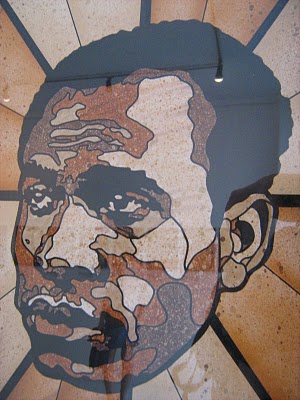 Documentary on Frantz Fanon. Before Amos Wilson,Frances Welsing, Joy DeGruy, and countless others, Fanon wrote studied and articulated our modern day colonial existence which still goes on. Very interesting comments on interracial relationships, and the Original Woman’s rejection of the Original Man
Documentary on Frantz Fanon. Before Amos Wilson,Frances Welsing, Joy DeGruy, and countless others, Fanon wrote studied and articulated our modern day colonial existence which still goes on. Very interesting comments on interracial relationships, and the Original Woman’s rejection of the Original Man
«Pedagogía del oprimido»: Paulo Freire
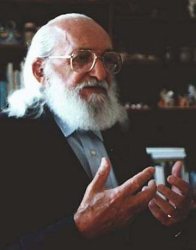 Paulo Freire es un pensador comprometido con la vida; no piensa ideas, piensa la existencia. Es también educador: cobra existencia su pensamiento en una pedagogía en que el esfuerzo totalizador de la “praxis” humana busca, en la interioridad de ésta, re-totalizarse como “práctica de la libertad”. En sociedades cuya dinámica estructural conduce a la dominación de las conciencias, “la pedagogía dominante es la pedagogía de las clases dominantes”. Los métodos de opresión no pueden, contradictoriamente, servir a la liberación del oprimido. En esas sociedades, gobernadas por intereses de grupos, clases y naciones dominantes, “la educación como práctica de la libertad” postula necesariamente una “pedagogía del oprimido”. No pedagogía para él, sino de él. Los caminos de la liberación son los del mismo oprimido que se libera: él no es cosa que se rescata si no sujeto que se debe autoconfigurar responsablemente. La educación libertadora es incompatible con una pedagogía que, de manera consciente o mistificada, ha sido práctica de dominación. La práctica de la libertad sólo encontrará adecuada expresión en una pedagogía en que el Oprimido tenga condiciones de descubrirse y conquistarse, reflexivamente, como sujeto de su propio destino histórico.
Paulo Freire es un pensador comprometido con la vida; no piensa ideas, piensa la existencia. Es también educador: cobra existencia su pensamiento en una pedagogía en que el esfuerzo totalizador de la “praxis” humana busca, en la interioridad de ésta, re-totalizarse como “práctica de la libertad”. En sociedades cuya dinámica estructural conduce a la dominación de las conciencias, “la pedagogía dominante es la pedagogía de las clases dominantes”. Los métodos de opresión no pueden, contradictoriamente, servir a la liberación del oprimido. En esas sociedades, gobernadas por intereses de grupos, clases y naciones dominantes, “la educación como práctica de la libertad” postula necesariamente una “pedagogía del oprimido”. No pedagogía para él, sino de él. Los caminos de la liberación son los del mismo oprimido que se libera: él no es cosa que se rescata si no sujeto que se debe autoconfigurar responsablemente. La educación libertadora es incompatible con una pedagogía que, de manera consciente o mistificada, ha sido práctica de dominación. La práctica de la libertad sólo encontrará adecuada expresión en una pedagogía en que el Oprimido tenga condiciones de descubrirse y conquistarse, reflexivamente, como sujeto de su propio destino histórico.
Conferencia de Bolívar Echeverría en el Coloquio Internacional «Razón y Revolución»
 Conferencia de Bolívar Ecgeverría dictada el 23 de octubre del 2009 en el auditorio del Museo Universitario de Arte Contemporáneo, dentro del Coloquio Internacional: Razón y revolución, organizado por el Centro de Estudios Teóricos y Multidisciplinarios en Ciencias Sociales de la FCPyS de la UNAM
Conferencia de Bolívar Ecgeverría dictada el 23 de octubre del 2009 en el auditorio del Museo Universitario de Arte Contemporáneo, dentro del Coloquio Internacional: Razón y revolución, organizado por el Centro de Estudios Teóricos y Multidisciplinarios en Ciencias Sociales de la FCPyS de la UNAM
«Vygotsky, Bakhtin, Goethe: Consciousness and the dynamics of voice»: John Shotter
 ABSTRACT: All our higher mental functions are mediated processes, says Vygotsky (1986), and signs are the basic means used to master and direct them. But how can this be if our words and other signs work only in a purely representational, ‘picturing’ fashion, for they still need interpreting as to their meaning? The ‘inner observation’ problem remains unsolved. Our significant expressions must also work on us in another way: by the living expressions of others producing spontaneous bodily reactions from us. Thus the relation between thought and language is not to be found in patterns discoverable in transcripts of already spoken words, but in the dynamic influences exerted by our words in their speaking. Vygotsky (1986) speaks of our utterances as having an affective-volitional intonation in their voicing, while Bakhtin (1993) talks of them as having an emotional-volitional tone. This means, as I will elaborate in my talk, that not only it is possible to possess a transitional understanding of ‘where’ at any one moment we are placed in relation to another person’s expressions, but to possess also at that moment an action guiding anticipation of the range of next ‘moves’ they may make. Thus, as I see it then, thinking and consciousness is a socially responsive elaboration of our animal sensitivities to, and awareness of, events occurring in our relations to the others and othernesses in our surroundings. Thus, far from it being a special, private, inner theater or workshop of the mind, its emergence depends completely on the dynamical intertwining or intermingling of our ‘inner lives’ with the ‘inner’ lives of those around us. This view of thinking chimes in with Goethe’s [1749-1832] views quoted below, as well as with his account of a special kind of thinking he calls exact sensorial imagination. In this view, our thinking and consciousness becomes no more strange to us than the fact of our ‘livingness’ – a fact that is at once both ordinary, in the sense of being very familiar to us in our daily practical lives, as well as being quite extraordinary to us in our intellectual lives, due to the current inappropriateness of our academic modes of thought and talk. My talk, then, will be just as much concerned with an exploration of the move away from mechanical modes of thought to those appropriate to living processes, as it will be about thinking and consciousness.
ABSTRACT: All our higher mental functions are mediated processes, says Vygotsky (1986), and signs are the basic means used to master and direct them. But how can this be if our words and other signs work only in a purely representational, ‘picturing’ fashion, for they still need interpreting as to their meaning? The ‘inner observation’ problem remains unsolved. Our significant expressions must also work on us in another way: by the living expressions of others producing spontaneous bodily reactions from us. Thus the relation between thought and language is not to be found in patterns discoverable in transcripts of already spoken words, but in the dynamic influences exerted by our words in their speaking. Vygotsky (1986) speaks of our utterances as having an affective-volitional intonation in their voicing, while Bakhtin (1993) talks of them as having an emotional-volitional tone. This means, as I will elaborate in my talk, that not only it is possible to possess a transitional understanding of ‘where’ at any one moment we are placed in relation to another person’s expressions, but to possess also at that moment an action guiding anticipation of the range of next ‘moves’ they may make. Thus, as I see it then, thinking and consciousness is a socially responsive elaboration of our animal sensitivities to, and awareness of, events occurring in our relations to the others and othernesses in our surroundings. Thus, far from it being a special, private, inner theater or workshop of the mind, its emergence depends completely on the dynamical intertwining or intermingling of our ‘inner lives’ with the ‘inner’ lives of those around us. This view of thinking chimes in with Goethe’s [1749-1832] views quoted below, as well as with his account of a special kind of thinking he calls exact sensorial imagination. In this view, our thinking and consciousness becomes no more strange to us than the fact of our ‘livingness’ – a fact that is at once both ordinary, in the sense of being very familiar to us in our daily practical lives, as well as being quite extraordinary to us in our intellectual lives, due to the current inappropriateness of our academic modes of thought and talk. My talk, then, will be just as much concerned with an exploration of the move away from mechanical modes of thought to those appropriate to living processes, as it will be about thinking and consciousness.
«Talk of sayin, showing, gesturing, and feeling in Wittgenestein and Vygotsky»: John Shotter
 ‘There is a strongly musical element in verbal language. (A sigh, the intonation of voice
‘There is a strongly musical element in verbal language. (A sigh, the intonation of voice
in a question, in an announcement, in longing; all the innumerable gestures made with
the voice.)’ (Wittgenstein, 1981, no.161).
‘The child’s self-motion, his own gestures, are what assign the function of sign to the
object and give it meaning‘ (Vygotsky, 1978, p.108).
Traditionally in the social and behavioral sciences, seeking a single, unified, orderly account of things, we have spoken and written about ourselves as disembodied, isolated, self-contained individuals. We think of ourselves as existing in a fixed world of objects that we come to know, primarily, in a visual-intellectual manner, through our observations of them. As such, we have assumed that we can only come to know our own true nature in such a world by our empirical testing of our possible representations of it for their accuracy. However, unlike computers and other machines, as living, embodied beings, we cannot be wholly indifferent to the world around us. We must, to an extent, continuously react and respond to it, spontaneously, whether we like it or not, and in so doing, we must of necessity, relate and connect ourselves to our surroundings in one way or another.
Below, influenced both by Wittgenstein and Vygotsky (as well as Volosinov and Bakhtin), I want to explore the consequences of us talking of human activity from within a new vocabulary that takes our living, embodied nature seriously, from within what I shall call a relational rather than an individualistic way of talking. For, just as the child, ‘with the help of the indicative function of words,… begins to master his (sic) attention, creating new structural centers in the perceived situation (Vygotsky, 1978, p.35), so we also, as investigators, can draw our own attention to otherwise unnoticed features of our own conduct, through the introduction of a new vocabulary, a new way of talking.
«Bakhtin, Alterity, and Ideology»: Luis Radford
 Commentary on the Chapter by Richard
Commentary on the Chapter by Richard
Barwell, “Heteroglossia in Multilingual
Mathematics Classrooms”
Mathematics classrooms are sites of encounter for different voices, perspectives, and ideas. Those differences become even more visible when the object of difference is language. In his chapter, Barwell draws on Bakhtin’s concept of heteroglossia to explore the tensions that underpin multilingual classrooms. He enquires about how those tensions influence the teaching and learning of mathematics and the implications that they may have for equity in mathematics teaching. In my comments, I would like to dwell upon the question of language in the mathematics classroom and on some issues about equity.
1 Language in the Mathematics Classroom
One way or another, for one reason or another, since the time of Babylonian schools, institutional educations have always faced the question of linguistic diversity. However, the manner in which this diversity has been addressed and understood has not always been the same. Contemporary schools seem to be led to address this diversity along the lines of contemporary concerns about equity and social justice. These concerns, of course, are a token of social and political interests in coming to grips with cultural diversity, brought forward by unprecedented migratory movements of a global scale.
«The Role of Language and Ideology in Social Reproduction According to Rossi-Landi»: Augusto Ponzio
 Abstract
Abstract
Rossi-Landi elaborated such concepts as linguistic production, linguistic work and linguistic capital in social reproduction, identifying homological relations with material production. These concepts describe factors that are fundamental in today’s social reproduction cycle as also emerges from the circulation of such expressions as ‘immaterial resource’, ‘immaterial capital’ and ‘immaterial investment’ in linguistic usage today. All this is accompanied by awareness of the importance of education, information and specialized knowledge for development and competition in present day knowledge society. Until recently material production and linguistic production, that is, manual work and intellectual work, were thought to be separate but related homologically at profound genetic and structural levels. The novelty is that in the world of global communication linguistic and material production have merged. The computer has united hardware and software in a single unit. The connection between work and material artefacts, on one hand, and work and linguistic artefacts, on the other, is now obvious such that the superior capacity of linguistic, that is, ‘immaterial work’, is also now obvious. Linguistic work leads the processes of production and development.
Leer más…
«Del Signo al Sentido: aproximaciones para un estudio semiótico de la conciencia»: Vicente Mario Sisto
Resulta vívida la descripción introspectiva que realiza el semiólogo soviético Mijail Bajtin. Bajtin intenta descubrir la conciencia en su esencia más pura, para ello procede a retirar de ella uno a uno los elementos que la cubren, para así lograr definirla. La conciencia pareciera estar plena de palabras, las que resultan ser materia óptima para corporeizar los contenidos de ésta, tales como pensamientos e incluso sensaciones y deseos. Basta con acomodarse, cerrar los ojos e intentar no pensar en nada específico, y así concentrarnos en nuestra respiración y en lo que escuchamos. No tardaremos en darnos cuenta que no es posible simplemente sentir los sonidos, siempre, en su aparecer en la conciencia irán acompañados por su ‘etiqueta’, un bocinazo aparece como «bocinazo», el ladrido de un perro aparece como «perro», y no como una simple vibración en mi aparato auditivo, y si lo fuera así probablemente aparecería como «vibración» (la palabra).
Así si intentamos eliminar de la conciencia esta capa, nos encontramos en la situación del niño que busca pelar una cebolla. Bota la primera capa, luego la segunda y sigue así hasta que se encuentra que en sus manos no ha quedado nada. Nada de nada. Sin signos pareciera no existir conciencia posible.
El presente trabajo intenta descubrir, de un modo más sistemático, esa constitución sígnica que es condición necesaria para la existencia de procesos psicológicos superiores, y por consiguiente, de la conciencia misma. De lo anterior resulta necesario investigar acerca de las peculiaridades que asume la conciencia al componerse semióticamente; de ahí que sea relevante una exploración acerca de las características de los signos y sus posibilidades de significación y referencia. Realizar tal exploración revelará, a su vez, la necesidad de un estudio de la cultura, en tanto relación y origen de tal conciencia constituida semióticamente.
«Aportaciones de Valentin Nikolaevich Volsohinov para una sociolingüística crítica»: Rubén Moralejo Silva
 Resumen:
Resumen:
En este trabajo analizamos la tradición lingüística soviética, en particular, el pensamiento de Valentin Nikolaevich Voloshinov (1895-1936). El objetivo es indagar en un doble aspecto de su obra. Por una parte, abordaremos la relación entre pensamiento, lenguaje, e ideología y, por otra parte, la relación de estos con los procesos socioeconómicos, según podemos extraer, principalmente, de su obra Marksizm i Filosofiya Yazyká (Leningrado, 1929). Para ello, daremos cuenta de aquellas nociones relacionadas con la teoría social marxista y su desarrollo durante el florecimiento cultural, político y social que tuvo lugar en torno a la Revolución rusa, a principios del siglo XX. Asimismo, en relación con una posible vía de aplicación de la visión voloshinoviana del lenguaje y la ideología en los estudios sociales, exploraremos la posibilidad de considerar su compatibilidad con la teoría psicoanalítica dedicada al análisis cultural y social.
Palabras clave: filosofía del lenguaje, ideología, lenguaje y pensamiento, sociolingüística crítica, lingüística soviética, Círculo de Bakhtin, análisis crítico del discurso
«La construcción narrativa de la identidad a través del conflicto y la ventrilocuación»: M. Esteban, J.Mª Nadal e I. Vila
 Resumen
Resumen
El objetivo del siguiente trabajo es analizar el discurso de indígenas y mestizos a partir de una perspectiva pragmática. En particular, vamos a explorar la idea de que estos discursos están constituidos por muchas voces. En otras palabras, se muestra la polifonía, para utilizar una idea de Bakhtin. Según este enfoque, la identidad se desarrolla a través de la integración de voces ajenas que se produce a través de narraciones. En este sentido, la identidad surge de rellenar con la propia intención las palabras de los demás. Siguiendo la etnografía de la comunicación nuestra unidad de análisis es el acto de habla (el acto de significado) que se produce en un contexto. Sugerimos que la ventrilocuación de las ideas de otras personas y los conflictos son temas relevantes para el estudio de la construcción narrativa de la identidad.
Palabras clave: identidad, narración, historias de vida, ventrilocuación, Bakhtin.
«Reconocimiento versus ethos»: Stefan Gandler
 Resumen
Resumen
El filósofo mexicano Bolívar Echeverría distingue cuatro ethe de la modernidad capitalista, entre ellos: el realista, hoy dominante, es el de la claridad; el barroco, es el de contradicciones, de doblesentidos. Según la teoría hegeliana del reconocimiento (Honneth/Habermas), la convivencia racional entre culturas sólo es posible dentro del ethos realista. Se parte del a priori dudoso de la posibilidad del reconocimiento dentro de la sociedad burguesa (entendiendo al racismo como algo accidental y no estructural). El ethos barroco, que existe en América Latina, implica la posibilidad de convivir con el otro sin reconocerlo en términos hegelianos, abriendo vías al mestizaje cultural. La falta de claridad de este ethos es la base de cierta convivencia intercultural bajo su actual imposibilidad estructural.
Palabras clave: ethos, reconocimiento, Bolívar Echeverría, Axel Honneth, Escuela de Frankfurt
«Saussure, Voloshinov y Bajtín revisitados. Estudios históricos y epistemológicos»: Dora Riestra (comp.)
 Que la atribución de la autoría de El marxismo y la filosofía del lenguaje a Mijaíl Bajtín no solo es un error sino que una “maquinación”, o que la lectura más difundida de Saussure no es más que una “explotación” estructuralista, reduccionista e incluso equivocada son solo dos de las sugerentes tesis de lectura que este texto presenta. La compilación de la argentina Dora Riestra incluye trabajos de Cristian Bota, Jean Paul Bronckart, Ecaterina Bulea, Irina Ivanovna y Patrick Sériot, que aportan significativamente a la relectura y a la contextualización histórica de teorías que hoy tienen una radical relevancia en las ciencias del lenguaje, el análisis del discurso y la didáctica de las lenguas. La propuesta del texto –histórica e interpretativa, más que filológica– es poner en perspectiva y resolver los problemas epistemológicos y metodológicos que reviste el uso de estos conceptos, de circulación frecuente en los contextos académicos y universitarios actuales.
Que la atribución de la autoría de El marxismo y la filosofía del lenguaje a Mijaíl Bajtín no solo es un error sino que una “maquinación”, o que la lectura más difundida de Saussure no es más que una “explotación” estructuralista, reduccionista e incluso equivocada son solo dos de las sugerentes tesis de lectura que este texto presenta. La compilación de la argentina Dora Riestra incluye trabajos de Cristian Bota, Jean Paul Bronckart, Ecaterina Bulea, Irina Ivanovna y Patrick Sériot, que aportan significativamente a la relectura y a la contextualización histórica de teorías que hoy tienen una radical relevancia en las ciencias del lenguaje, el análisis del discurso y la didáctica de las lenguas. La propuesta del texto –histórica e interpretativa, más que filológica– es poner en perspectiva y resolver los problemas epistemológicos y metodológicos que reviste el uso de estos conceptos, de circulación frecuente en los contextos académicos y universitarios actuales.
«Language for the Other: Constructing Cultural-Historical Psycholinguistics»: Marie-Cécile Bertau
 Cultural-historical psycholinguistics addresses language activity in its social as well as in its psychological function with corresponding verbal forms. Language is thus situated within the life activity of situated and positioned, mutually oriented societal individuals, it is not abstractable from these individuals, nor from their activity. This notion of language is at the core of the proposed ‘psycholinguistics of alterity’ (Bertau 2011), constructed firstly through a historical and conceptual analysis, secondly in a theoretical way involving empirical results from diverse fields of language investigation. The aim of our contribution is to introduce the main elements of this construction, we will hence follow the same rationale. In a first step, Humboldt’s language philosophy and its reception by Russian linguists is addressed. Dialogicality of language and thought processes is the core notion which is taken up and developed in Russia and in the Soviet Union by several thinkers. Vygotsky’s specific language psychology is seen within this context of ideas, constituting the framework for considering the relation between language and thought. Building on Humboldt’s philosophy of language, Russian dialogical linguistics and cultural-historical psychology as formulated by Vygotsky, the theoretical system addressing language as activity of socially organized and self-other positioned individuals is presented in a second step.
Cultural-historical psycholinguistics addresses language activity in its social as well as in its psychological function with corresponding verbal forms. Language is thus situated within the life activity of situated and positioned, mutually oriented societal individuals, it is not abstractable from these individuals, nor from their activity. This notion of language is at the core of the proposed ‘psycholinguistics of alterity’ (Bertau 2011), constructed firstly through a historical and conceptual analysis, secondly in a theoretical way involving empirical results from diverse fields of language investigation. The aim of our contribution is to introduce the main elements of this construction, we will hence follow the same rationale. In a first step, Humboldt’s language philosophy and its reception by Russian linguists is addressed. Dialogicality of language and thought processes is the core notion which is taken up and developed in Russia and in the Soviet Union by several thinkers. Vygotsky’s specific language psychology is seen within this context of ideas, constituting the framework for considering the relation between language and thought. Building on Humboldt’s philosophy of language, Russian dialogical linguistics and cultural-historical psychology as formulated by Vygotsky, the theoretical system addressing language as activity of socially organized and self-other positioned individuals is presented in a second step.

